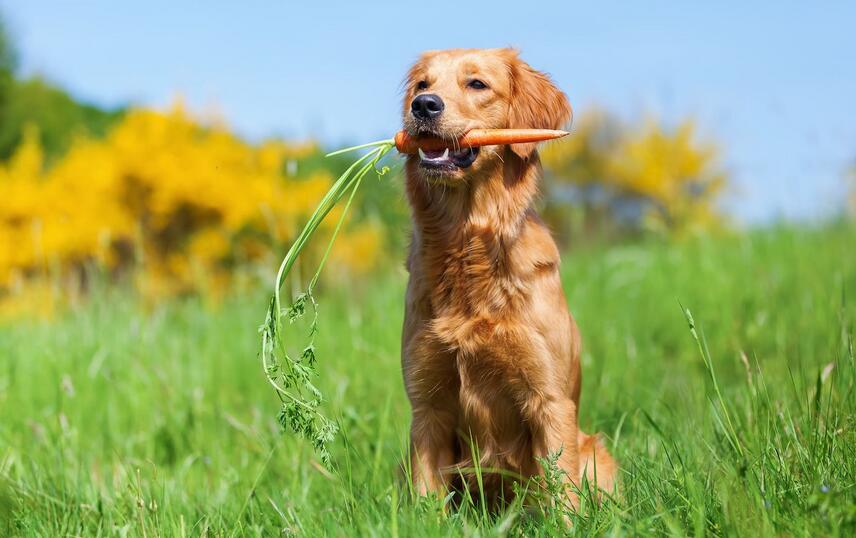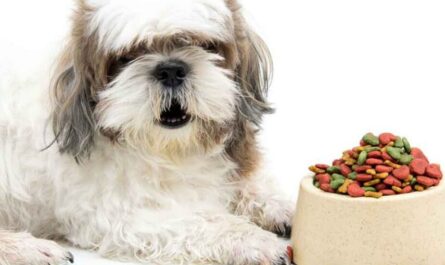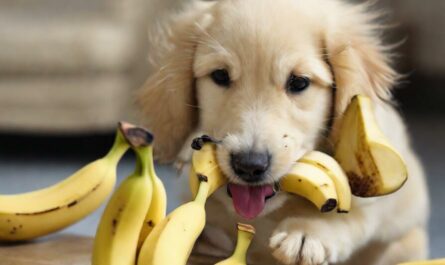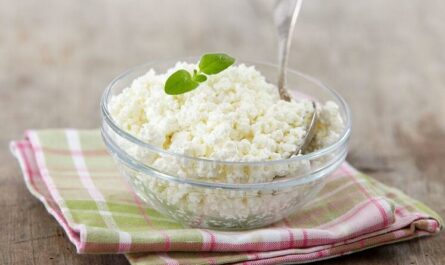As pet owners, we always strive to provide the best care for our furry companions, and one crucial aspect of their well-being is their diet. Among the many questions that arise, one common query is: Can dogs eat carrots? While this may seem like a simple question, it opens up a broader discussion about what foods are safe and beneficial for our canine friends. This article will delve deep into the nutritional benefits, potential risks, and best practices for introducing this vegetable into your dog’s diet.
Can dogs eat carrots?
Yes, dogs can eat carrots, and in fact, they can be a healthy addition to their diet. Carrots are safe for dogs to consume and offer numerous health benefits. They are low in calories and high in essential vitamins, minerals, and fiber. This makes them a nutritious snack option for your canine companion.
However, it’s important to remember that while carrots are generally safe for dogs, every dog is unique, and individual sensitivities or allergies may exist. As with any new food, it’s recommended to introduce carrots gradually and monitor your dog for any adverse reactions.
Health Benefits of Carrots for Dogs
Carrots are not only a delicious and crunchy treat for humans, but they also offer numerous health benefits for our furry friends.
1. Rich in Essential Nutrients
Carrots are a nutritional powerhouse for dogs. They contain an array of essential vitamins and minerals that support overall health and well-being. Some key nutrients found in carrots include:
- Vitamin A: Carrots are renowned for their high vitamin A content. This essential nutrient promotes good vision, supports immune function, and contributes to healthy skin and coat.
- Vitamin K: Crucial for proper blood clotting and bone health, vitamin K is abundant in carrots.
- Vitamin C: As a potent antioxidant, vitamin C plays a vital role in boosting the immune system and fighting off free radicals.
- Potassium: Essential for maintaining proper muscle and nerve function, potassium is an important mineral found in carrots.
- Fiber: Carrots are a great source of dietary fiber, which aids in digestion and helps regulate bowel movements.
2. Promotes Dental Health
Chewing on crunchy vegetables like carrots can have a positive impact on your dog’s dental health. The natural texture of carrots helps remove plaque and tartar buildup, reducing the risk of gum disease and tooth decay. The act of gnawing on a carrot can also stimulate saliva production, which helps to neutralize harmful bacteria in the mouth.
3. Supports Weight Management
If you’re looking to help your dog shed a few pounds or maintain a healthy weight, carrots make an excellent low-calorie snack option. They are naturally low in calories and high in fiber, making your dog feel full without consuming excess calories. By substituting high-calorie treats with carrot sticks, you can help your furry friend achieve and maintain a healthy weight.
4. Aids Digestion
The high fiber content in carrots promotes healthy digestion in dogs. Fiber acts as a natural regulator, preventing constipation and promoting regular bowel movements. Including carrots in your dog’s diet can help keep their digestive system functioning optimally and maintain good gut health.
5. Supports Eye Health
Carrots are famously known for their association with good vision, and this holds for dogs as well. The high levels of beta-carotene, which the body converts into vitamin A, in carrots help support eye health and prevent vision problems in dogs. Regular consumption of carrots may contribute to maintaining clear and healthy eyes for your canine companion.
6. Boosts Skin and Coat Health
The vitamins and antioxidants found in carrots can have a positive impact on your dog’s skin and coat health. The beta-carotene in carrots supports the production of sebum, an oily substance that moisturizes the skin and keeps the coat healthy and shiny. Regular consumption of carrots can help address dry, itchy skin and promote a lustrous, well-conditioned coat.
7. Provides Antioxidant Protection
Carrots are packed with antioxidants, which help combat free radicals in the body. Free radicals are unstable molecules that can cause cellular damage and lead to various health issues. The antioxidants found in carrots, such as beta-carotene and vitamin C, neutralize these harmful compounds, supporting your dog’s immune system and reducing the risk of chronic diseases.
8. Supports Heart Health
The potassium content in carrots contributes to heart health in dogs. Potassium helps regulate blood pressure and maintain a healthy heart rhythm. By including carrots in your dog’s diet, you can support cardiovascular health and reduce the risk of heart-related issues.
9. Boosts Immune Function
The abundance of vitamins and antioxidants in carrots strengthens your dog’s immune system, helping them fight off infections and diseases. A robust immune system is crucial for overall health and longevity in dogs, and incorporating carrots into their diet can provide a natural immune boost.
10. Offers Hydration and Freshens Breath
Carrots have a high water content, which can contribute to your dog’s hydration. Staying adequately hydrated is essential for your dog’s overall well-being, supporting various bodily functions. In addition to hydration, chewing on carrots can also help freshen your dog’s breath by removing food particles and bacteria from their teeth and gums.
Are Carrots Good for Dogs?
Absolutely! Carrots are not only safe but also highly beneficial for dogs. They serve as a healthy, low-calorie snack option, making them an excellent choice for dogs that need to manage their weight.
The crunchy texture of carrots can also help promote dental health by scraping away plaque and tartar when your canine companion chews on them. Moreover, the vitamins and minerals found in carrots contribute to shiny and healthy skin and coat.
Are carrots bad for dogs?
Carrots are generally not considered bad for dogs. They are often regarded as a healthy and beneficial addition to their diet. However, there are a few considerations to keep in mind:
- Choking Hazard: If carrots are not cut into appropriate sizes, they can pose a choking risk, especially for small dogs or those prone to gulping their food. Always ensure that carrots are cut into small, bite-sized pieces or grated to make them easier to chew and swallow.
- Overfeeding: While carrots are low in calories and high in fiber, feeding excessive amounts of carrots can lead to an upset stomach or digestive issues in some dogs. It’s important to offer carrots in moderation and as part of a balanced diet.
- Allergies or Sensitivities: While rare, some dogs may have allergies or sensitivities to carrots. If you notice any signs of an allergic reaction, such as itching, hives, or gastrointestinal distress, discontinue feeding carrots and consult your veterinarian.
How To Safely Feed Your Dog Carrots?
Feeding carrots to your dog can be a safe and enjoyable experience. Here are some tips on how to safely feed carrots to your dog:
- Choose Fresh and Organic Carrots: Opt for fresh, organic carrots whenever possible. Avoid carrots that are wilted, discolored, or have signs of mold or rot.
- Wash Thoroughly: Before feeding carrots to your dog, make sure to wash them thoroughly under running water to remove any dirt or pesticide residue.
- Cut Into Bite-Sized Pieces: To prevent choking always cut carrots into small, bite-sized pieces appropriate for your dog’s size and chewing ability. For smaller dogs or those with dental issues, consider grating or shredding the carrots instead.
- Introduce Gradually: If your dog is trying carrots for the first time, start with a small amount and observe their reaction. Some dogs may take time to adjust to new foods or have individual sensitivities. If any digestive upset occurs, discontinue feeding carrots and consult your veterinarian.
- Moderation is Key: While carrots offer numerous health benefits, they should be incorporated into your dog’s diet in moderation. Treat carrots as a snack or supplement to their regular meals, rather than a primary food source. A general guideline is to feed carrots a few times a week, ensuring they make up only a small portion of your dog’s overall diet.
- Monitor Digestive Health: As with any new food, closely monitor your dog’s digestive health after introducing carrots. If you notice any signs of digestive upset, such as diarrhea or vomiting, adjust the amount or frequency of carrot consumption accordingly.
Carrots as a Part of Dog Treats and Dog Food
Integrating carrots into your dog’s diet can be both fun and beneficial. Here are a few suggestions for incorporating carrots into your furry friend’s meals:
- Homemade Dog Treats: Carrots can be a fantastic addition to homemade dog treats. Try recipes that combine shredded carrots with other dog-friendly ingredients, such as whole wheat flour, peanut butter, or oats. These treats can be baked or dehydrated for a crunchy texture that both you and your dog will love.
- Commercial Dog Food: Many high-quality commercial dog food brands include carrots as an ingredient in their formulations. When choosing dog food, look for reputable brands that prioritize real, whole-food ingredients and provide a balanced diet suitable for your dog’s specific nutritional needs.
- Carrot-Based Chew Toys: Some specialty pet stores offer carrot-based chew toys designed to provide a safe and healthy chewing experience for dogs. These toys are typically made from compressed, dehydrated carrots and can be an excellent alternative to rawhide or other less healthy chew toys. Always supervise your dog while they are using chew toys to ensure they are not excessively aggressive or attempting to swallow large pieces.
Special Considerations for Different Dogs
It is important to consider factors such as age, size, and specific dietary needs when feeding carrots to your dog:
- Puppies: For teething puppies, a frozen carrot can provide relief and serve as a soothing toy. The cold temperature helps alleviate discomfort and reduces inflammation in the gums. Always ensure the carrot is an appropriate size and supervise your puppy while they chew on it.
- Small Breeds: If you have a small breed dog, it is crucial to cut carrots into smaller, manageable pieces to prevent choking. Shredding or grating carrots can also be an excellent alternative, as it reduces the risk of larger chunks getting lodged in their throat.
- Large Breeds: Larger breeds typically have a better ability to chew and swallow food, so they can handle larger pieces of carrot. However, ensure that the size is still appropriate to avoid any potential choking hazards. Always monitor your dog while they are eating carrots to ensure they are chewing them thoroughly.
Alternatives to Carrots in a Dog’s Diet
While carrots are a fantastic option for dogs, it’s always good to have additional alternatives to provide dietary variety. Here are a few other safe and nutritious vegetables to consider:
- Broccoli: Rich in vitamins K and C, as well as fiber, broccoli can be steamed or lightly cooked and added to your dog’s meals. Make sure to cut it into small, bite-sized pieces.
- Leafy Greens: Vegetables like spinach, kale, and lettuce are excellent sources of vitamins and minerals. When introducing leafy greens, start with small amounts and gradually increase to avoid digestive upset.
- Pumpkin: This versatile vegetable is not only delicious but also packed with fiber and essential nutrients. It can help regulate digestive health and is often used as a natural remedy for constipation or diarrhea in dogs. Incorporate canned pumpkin (not pumpkin pie filling) into your dog’s diet in small amounts.
Remember to always research any specific vegetable before feeding it to your dog, as some vegetables may not be suitable due to potential toxicity or digestive issues.
FAQs
1. Can dogs eat raw or cooked carrots?
Yes, dogs can eat both raw and cooked carrots. However, there are some considerations to keep in mind when deciding whether to serve them raw or cooked.
Raw Carrots: Raw carrots have a satisfying crunch that many dogs enjoy. Chewing on raw carrots can also provide dental benefits by helping to remove plaque and tartar buildup. However, for dogs with dental issues or older dogs who may have difficulty chewing hard foods, raw carrots can be a bit tough. In such cases, it is recommended to cut the carrots into smaller, more manageable pieces.
Cooked Carrots: Cooking carrots can soften them, making them easier to chew and digest for dogs. Steaming or boiling carrots until they are tender can be a good option for dogs with dental problems or those who prefer a softer texture. Cooked carrots can also be mashed or pureed and mixed with your dog’s regular food. However, keep in mind that cooking can slightly reduce the nutritional content of the carrots, especially water-soluble vitamins like vitamin C.
2. How often can I feed carrots to my dog?
Carrots can be offered as an occasional treat or added as a supplement to your dog’s regular meals. Feeding carrots a few times per week is generally safe, but it’s essential to monitor your dog’s overall diet and ensure it remains balanced.
3. What are the signs that my dog doesn’t like or cannot tolerate carrots?
Watch for any signs of digestive upset, such as vomiting or diarrhea. If your dog exhibits these symptoms after consuming carrots, it may indicate an intolerance or sensitivity, and you should discontinue feeding carrots. Consult with your veterinarian if symptoms persist or worsen.
Conclusion
In conclusion, carrots can be a nutritious and enjoyable addition to your dog’s diet. Packed with essential vitamins, minerals, and fiber, carrots offer numerous health benefits for our four-legged friends. However, it is crucial to introduce carrots gradually, ensure proper portion control, and consider the specific needs of your dog.





